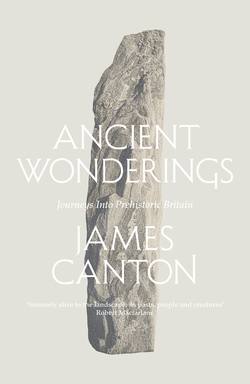Читать книгу Ancient Wonderings: Journeys Into Prehistoric Britain - James Canton, James Canton - Страница 7
ОглавлениеPREFACE
This book was born from a certain obsessive desire to understand the ancient world. I set out to venture across Britain seeking those prehistoric sites and phenomena that most intrigued me. Many of those travels were sentimental journeys, imaginative voyages. Inevitably, my interest in ancient Britain widened to encompass a need to know and to understand something of the ancient mindsets that created ways of living on these isles, ritual practices in these landscapes. And as I did so, my wonder took me ever deeper into time past.
I became a student of the ancient world. I learnt to step more carefully through the simplistic divisions between Stone, Bronze and Iron Ages. I learnt to recognise the magic of technological revolutions, such as that of metalworking with gold and copper brought by the Beaker people from continental Europe, and the alchemy of forging bronze from raw stone ore. Yet I also learnt to remember how even though those eras were defined by metals, stone was still very much in daily use. Flint especially remained an essential material. Agricultural revolutions burnt more slowly. The steady shift to farming – forging the first fields, sowing crops and keeping animals – that was practised by our distant ancestors took many generations to truly embed. The early agriculturalists still hunted and gathered to survive.
And then there were the Romans. Their arrival on these shores brought many changes. The arrival of the written word in Britain officially ended the era of prehistory in these isles. I knew that. But I learnt, too, that the fall of Roman feet on British soils brought no sudden shift in the ways and sensibilities of most British people.
In Ancient Wonderings, I perpetually sought to peer over the shoulders of those whose work filters our understanding of the ancient world. So I read the academic papers and books of leading archaeologists and scientists. I met them and listened to them as they spoke about their work. Their precision and patience has refined our vision of how British people lived and died and were buried and remembered in prehistoric times. I learnt by going to the places where the ancient past was still most visible and then tucking down away from the present world and digging down within, digging inside to realise what it is, what it has ever been, to be human. That process involved becoming immersed into a landscape, spending time in that world by day and by night – walking the terrain, getting to know the lie of the land: the geography, the geomorphology and the geology. To know a place you must start local – by reading its literatures and histories, listening to the voices of its peoples – steadily building an understanding and knowledge of a specific landscape, gradually unearthing a deeper topography. Then, and only really then, can you hope to venture back in time to try to see how that environment might once have looked. And only then can you begin to imagine the people and their ancient practices in that place so many years ago. It was at such times that I saw clearest – flowing through deepest time, seeking to see into the ways of past generations.
James Canton
March 2017
